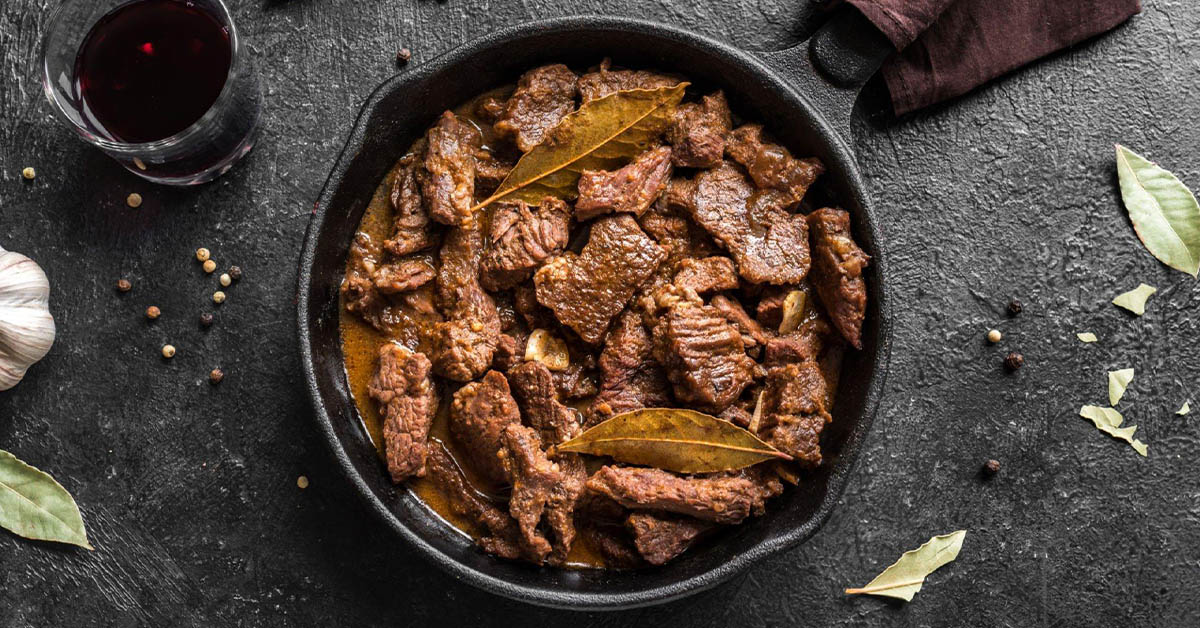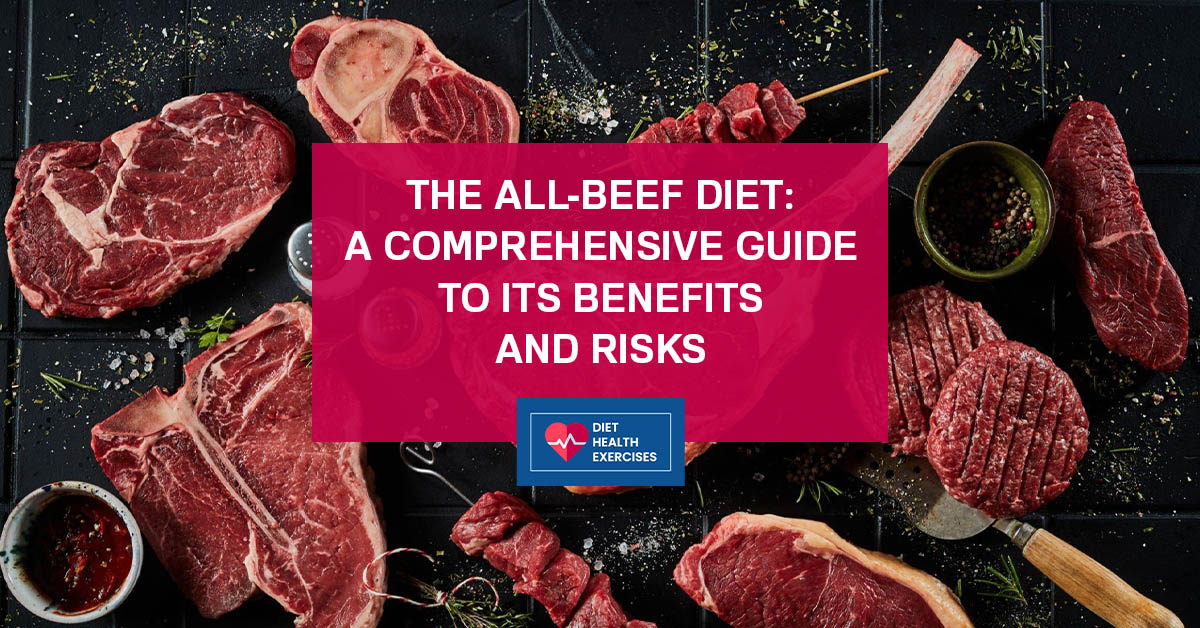As a nutritionist, I am often asked about the latest fad diets and whether they are safe and effective. One diet that has been gaining popularity in recent years is the all-beef diet. In this comprehensive guide, I will explore what the all-beef diet is, its potential benefits and risks, whether it can be sustainable, how to start the diet, success stories, frequently asked questions, and expert opinions.
Table of Contents
ToggleIntroduction to the All-Beef Diet
The all-beef diet is a diet that consists solely of beef. Supporters of the diet claim that it can lead to weight loss, improved energy, and better overall health. However, detractors argue that consuming only one type of food can lead to nutrient deficiencies and other health problems.
What is the All-Beef Diet?

The all-beef diet is a form of the carnivore diet which advocates for a diet consisting only of animal products. However, the all-beef diet takes this idea one step further by only consuming beef. This means that all other food groups, including fruits, vegetables, and grains, are eliminated from the diet.
The diet typically involves consuming different cuts of beef such as steak, ground beef, and beef liver. Some followers of the diet also include bone broth and organ meats as part of their daily intake.
The Benefits of the All-Beef Diet
Proponents of the all-beef diet claim that it can lead to a range of benefits, including weight loss, improved energy levels, and better digestion. The high protein content in beef can also help to build and maintain muscle mass.
Some followers also report improvements in skin conditions, such as acne and eczema, and reduced inflammation in the body. Additionally, the diet may be beneficial for people with autoimmune conditions, as it eliminates common trigger foods such as gluten and dairy.
The Risks of the All-Beef Diet

While advocates of the all-beef diet tout its benefits, there are also potential risks to consider. One of the biggest concerns is the elimination of whole food groups, which can lead to nutrient deficiencies.
For example, fruits and vegetables are important sources of vitamins and minerals that are essential for overall health. Eliminating these foods can lead to deficiencies in vitamin C, folate, and potassium, among others.
Another concern is the potential for high levels of saturated fat and cholesterol in the diet, which can increase the risk of heart disease and other health problems. Additionally, the high amounts of protein in the diet can put a strain on the kidneys and liver.
Looking for an easy way to calculate your daily calorie intake? Look no further than our calorie calculator! With just a few simple inputs, you can determine exactly how many calories you need to meet your weight loss or weight gain goals. Plus, our calculator is completely free and easy to use. So why wait? Visit our page today and start achieving your health goals with confidence!
Can the All-Beef Diet be Sustainable?
One of the biggest criticisms of the all-beef diet is that it is not sustainable in the long-term. The elimination of whole food groups can make it difficult to get all of the nutrients that the body needs to stay healthy.
Additionally, the diet can be expensive and may not be accessible to everyone. It also raises ethical concerns around the environmental impact and animal welfare issues associated with the beef industry.
How to Start the All-Beef Diet

If you are considering starting the all-beef diet, it is important to speak with a healthcare professional or a registered dietitian beforehand. They can help you assess whether the diet is appropriate for your individual needs and health goals.
It is also important to choose high-quality, grass-fed beef to ensure that you are getting the most nutrient-dense option. Additionally, it is important to vary the types of cuts of beef and include organ meats to ensure that you are getting a wide range of nutrients.
All-Beef Diet Success Stories
While there is limited scientific research on the all-beef diet, there are many success stories from people who have tried the diet. Some report significant weight loss and improved energy levels, while others report improvements in digestion and skin conditions.
However, it is important to note that these success stories are anecdotal and may not be applicable to everyone. Additionally, long-term effects of the diet are still unknown.
Frequently Asked Questions about the All-Beef Diet
Is the all-beef diet safe?
The safety of the all-beef diet is still unknown, as there is limited scientific research on its long-term effects. It is important to speak with a healthcare professional before starting the diet.
Can I lose weight on the all-beef diet?
Some people may experience weight loss on the all-beef diet due to its high protein content and elimination of other food groups. However, long-term weight loss is dependent on a variety of factors, including individual metabolism and exercise habits.
Can I have any other foods on the all-beef diet?
The all-beef diet is meant to be a strict elimination of all other food groups. However, some followers may include bone broth and organ meats as part of their daily intake.
What are the risks of an all-beef diet?
The risks of an all-beef diet include nutrient deficiencies, heart disease, and other health problems associated with a high intake of saturated fat and cholesterol.
Can an all-beef diet cure medical conditions?
No, there is no evidence to support the idea that an all-beef diet can cure medical conditions.
What nutrients are missing from an all-beef diet?
An all-beef diet is deficient in many important nutrients, including fiber, vitamins and minerals found in fruits and vegetables, and essential fatty acids.
Expert Opinions on the All-Beef Diet
The all-beef diet is a controversial topic in the nutrition world, with experts weighing in on both sides of the debate. Some argue that the elimination of whole food groups can lead to nutrient deficiencies and other health problems.
Others argue that the high-quality protein in beef can be beneficial for muscle building and overall health. However, many experts agree that the diet is not sustainable in the long-term and may not be appropriate for everyone.
Want to know the top 10 foods for weight loss? Look no further! Our experts have compiled a list of the best foods that can help you shed those extra pounds. From leafy greens and lean proteins to healthy fats and low-sugar fruits, these foods will help you feel full and satisfied while promoting weight loss. Don’t wait to start your weight loss journey – visit our page today and discover the top 10 foods that can help you reach your goals!
Conclusion
The all-beef diet is a controversial diet that eliminates all other food groups except for beef. While it may lead to short-term benefits such as weight loss and improved energy, it also comes with potential risks such as nutrient deficiencies and high levels of saturated fat and cholesterol.
Before starting the all-beef diet, it is important to speak with a healthcare professional or registered dietitian to assess whether the diet is appropriate for your individual needs and health goals. Additionally, it is important to choose high-quality, grass-fed beef and vary the types of cuts of beef to ensure that you are getting a wide range of nutrients.


